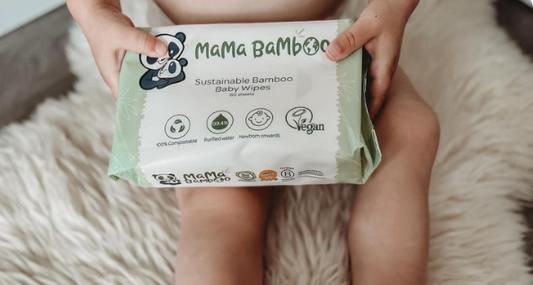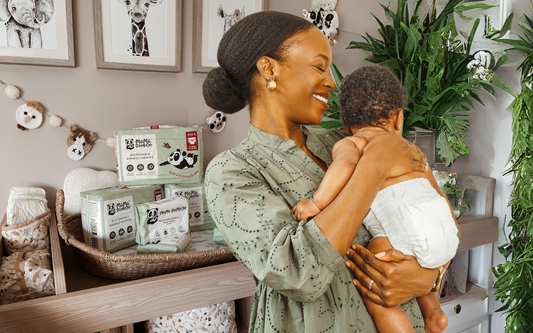Plastic is all around us. If we look around at items we use every day, the majority will be made of, or contain, some plastic. The world definitely could not be where it is today without plastic. It makes our lives easier and it’s more convenient on many levels but as we’re all too aware, the downside is that it doesn’t go away when we throw it away.
Plastic doesn’t break down - it just sits on the earth for a very, very long time – perhaps even forever. While recycling has become more common place in recent years, it’s scratching the surface. Plastic continues to be used and produced.

Plastic Alternatives
Lots of companies are now looking to produce plastic alternatives with renewed fervor as consumer become increasingly concerned about plastic packaging.
Here are some of the alternatives that are being investigated at the moment:
- Plant-based plastics – made from waste products from sources such as corn. It can be used to make bottles, food containers and films. Our nappy packaging and liners are made of corn starch
- Bagasse – this by-product of sugarcane processing can easily be shaped into packaging for food (similar to polystyrene) due to its malleability and stickiness.
- Stone paper and plastic – Paper can incredibly be made out of stone! It is made from calcium carbonate and can be used as a paper or plastic alternative as it is printable, recyclable and waterproof. A good alternative for paper bags, food cartons, greaseproof paper and zip-lock bags.
- Palm leaves – when the leaves naturally fall they can be collected and molded into a desired shape: to be used for food packaging for fruit and vegetables.
- Wood pulp cellophane – this is made from FSC certified wood pulp and in 3 formats: Uncoated, Semi-Permeable and Barrier that can used for a variety of different uses such as confectionary, dairy produce, snacks, tea and coffee.
- Milk plastic – made from the protein found in milk. This has been used to make plastic for over a century but went out of fashion after the more hardwearing and long-lasting petrochemical variety came into production; tech has been developed to make the plastic much stronger for wider use. Milk plastic is commonly used today in the detergent industry (the bubbles of dishwasher power and laundry detergent)!
What are Mama Bamboo doing?
We would love to be able to produce a 100% biodegradable nappy and whilst we probably could it would not be a very effective nappy. But this is the crucial part of sustainability isn’t it – we want to be more environmentally friendly but we still need what we use to be effective and not create more problems or waste.
Our nappies are currently up to 80% biodegradable because we felt it was important for the nappies to work well in addition to being eco-friendly. That does not mean however that we are happy with that! We are constantly looking at alternatives to make our nappies more biodegradable and here is what we have changed so far:
- Semi degradable bio-based SAP (super absorbent polymer) – we already use far less SAP than regular disposables but we have now found a semi degradable one.
- Compostable cornstarch film lining and packaging– up to now we had avoided these liners as they weren’t breathable but we have found a fully compostable breathable version.
Rest assured we continue to do further research to find viable, eco-friendly options for our nappies with the hope that at some point we will be able to have a nearly 100% biodegradable nappy.




